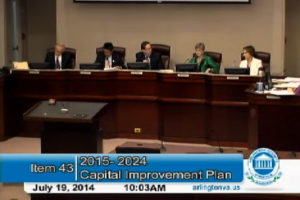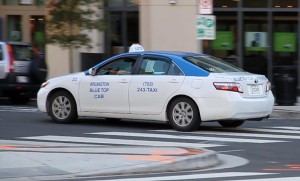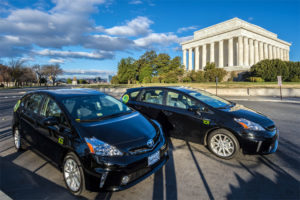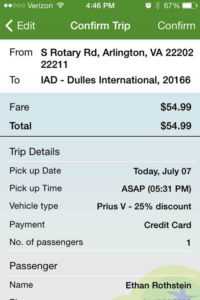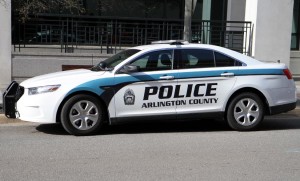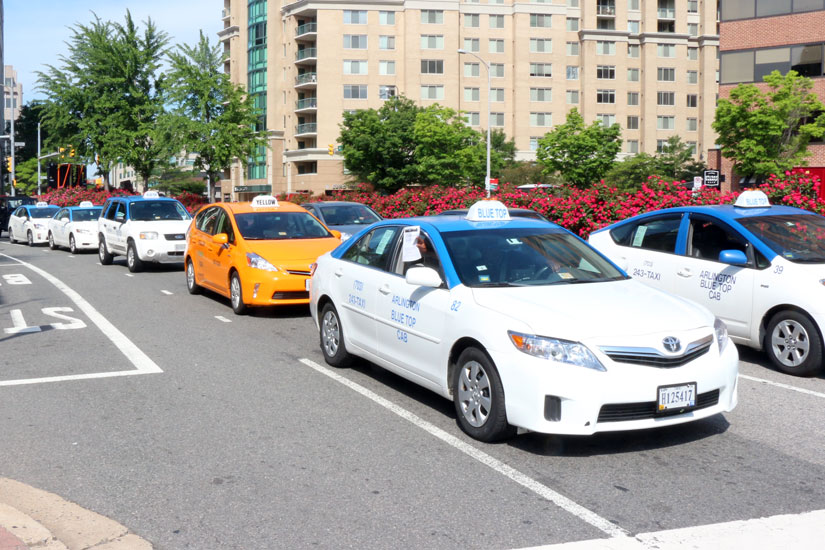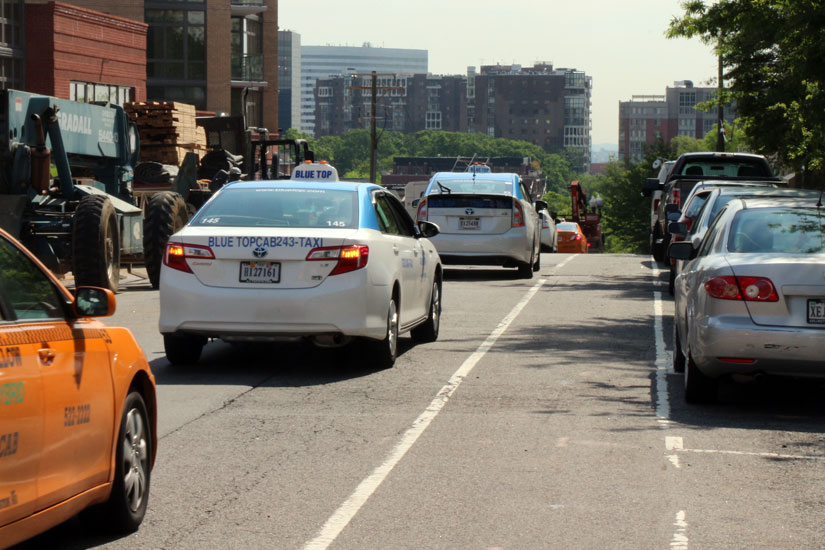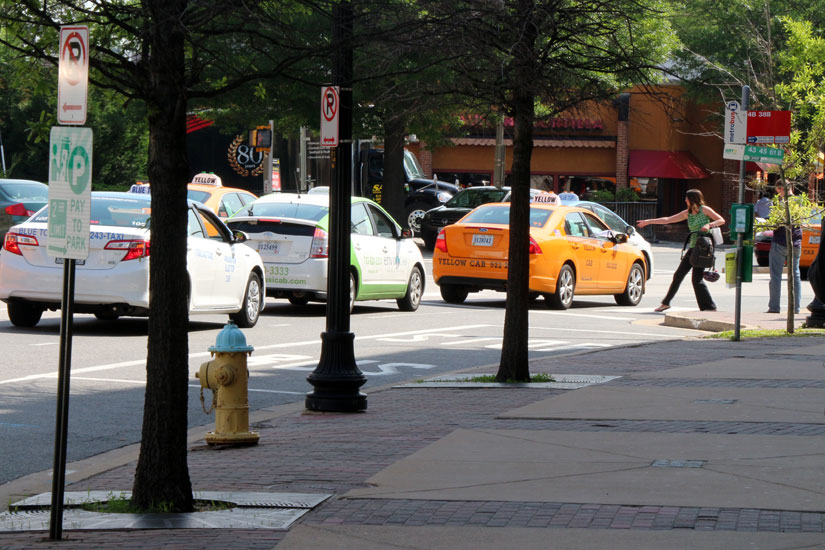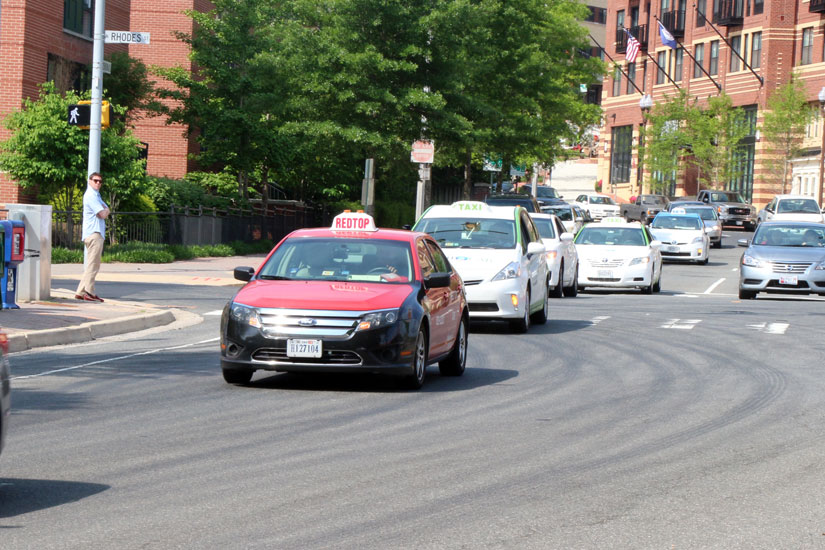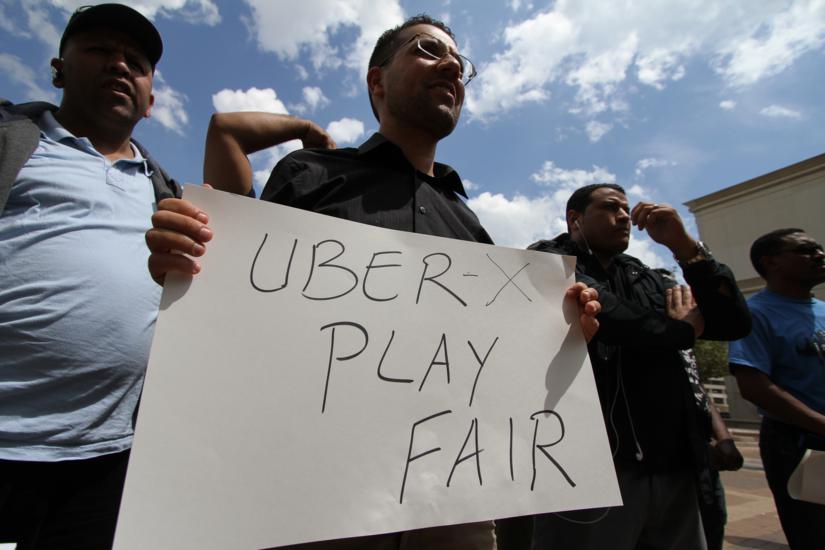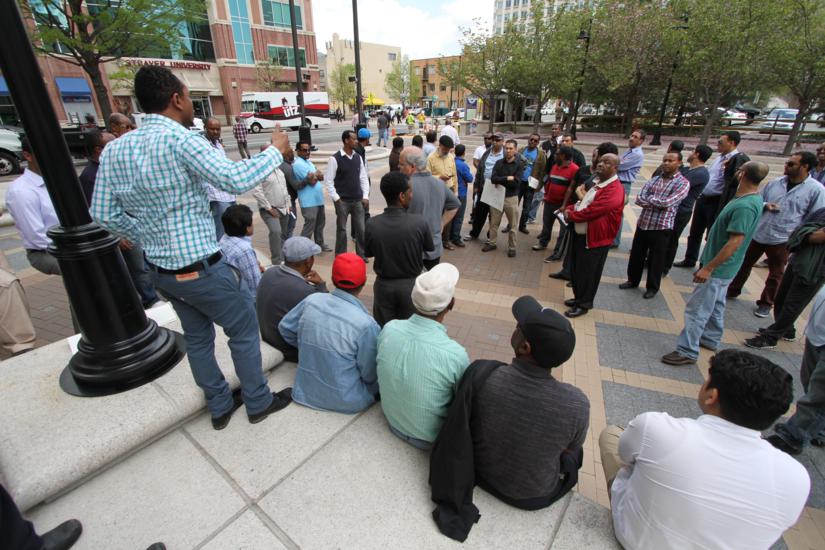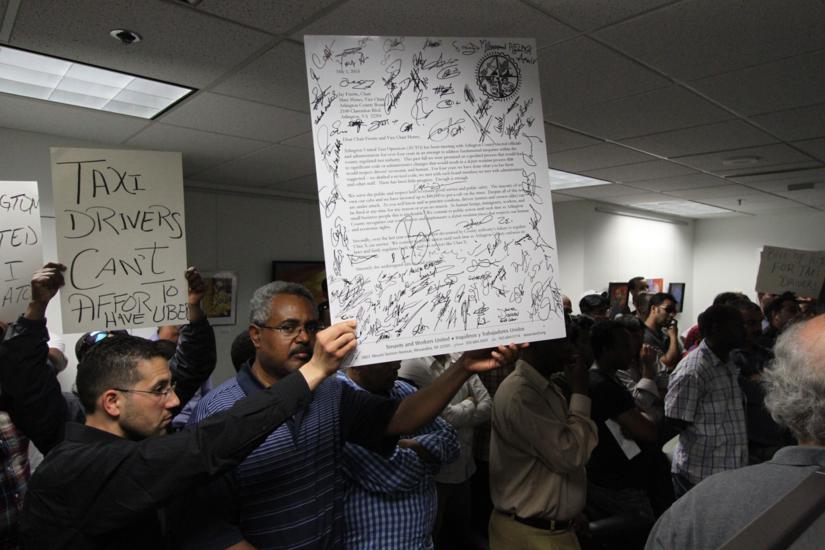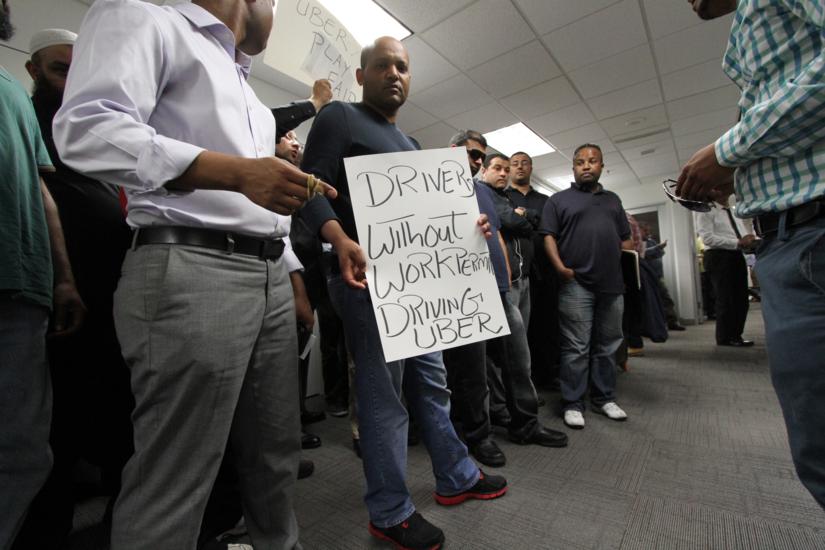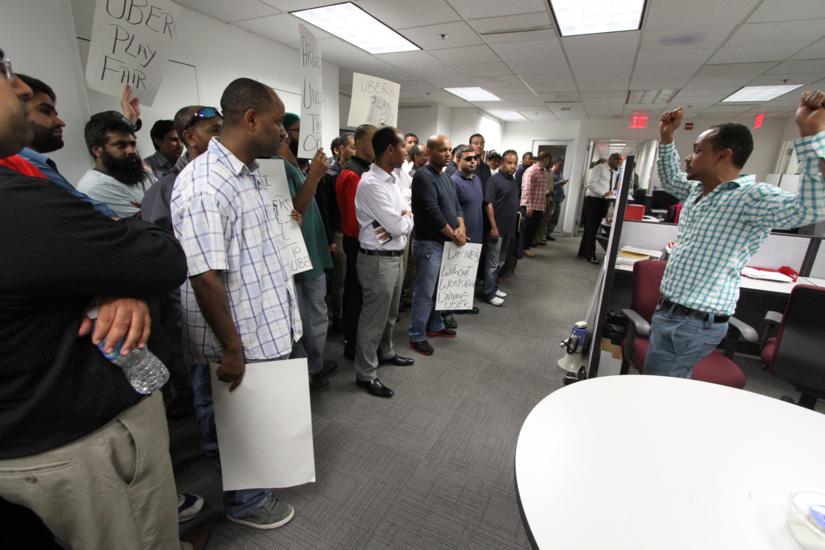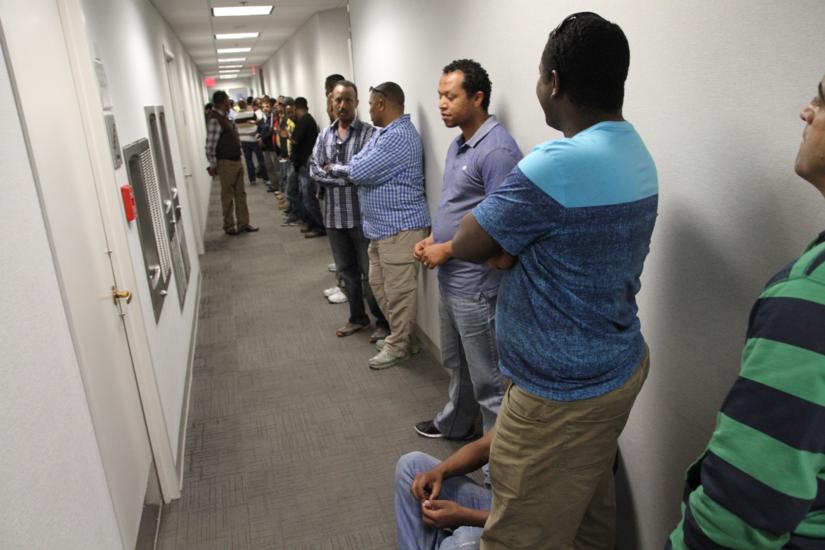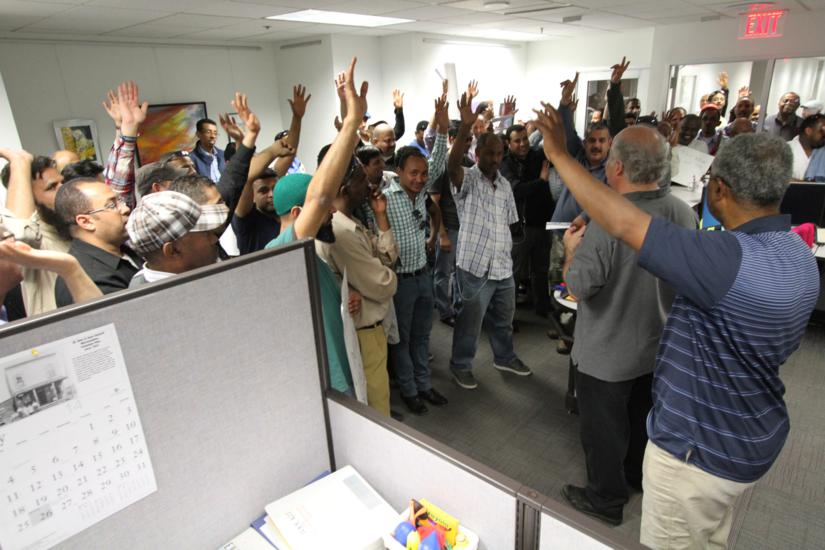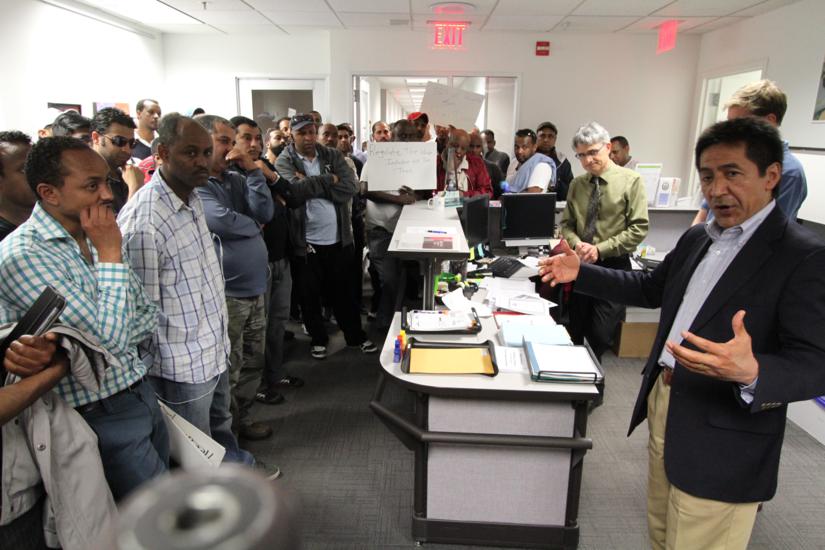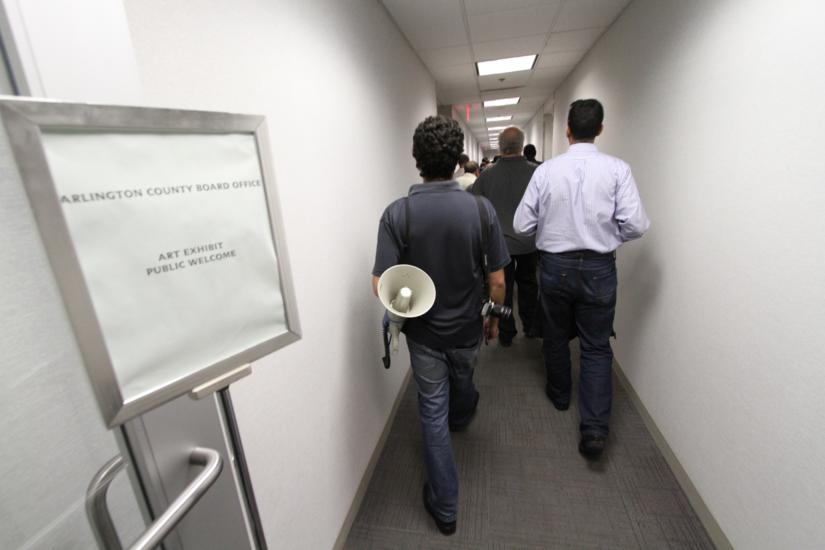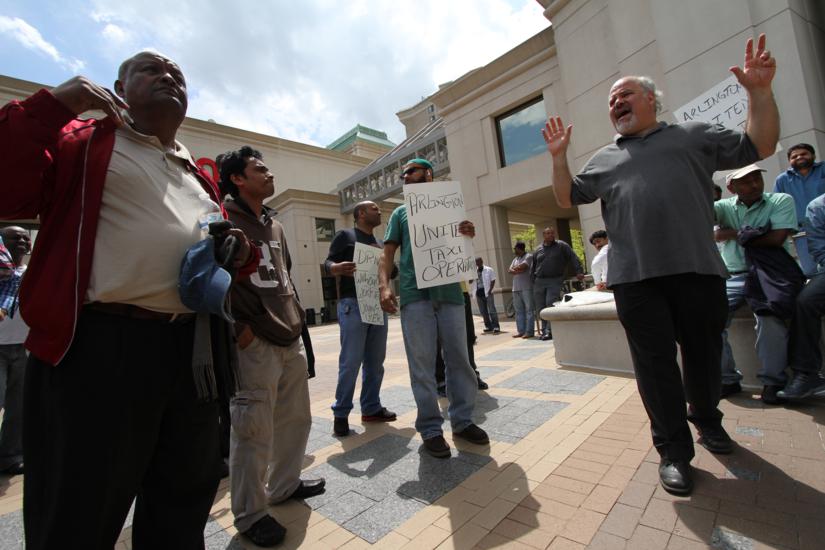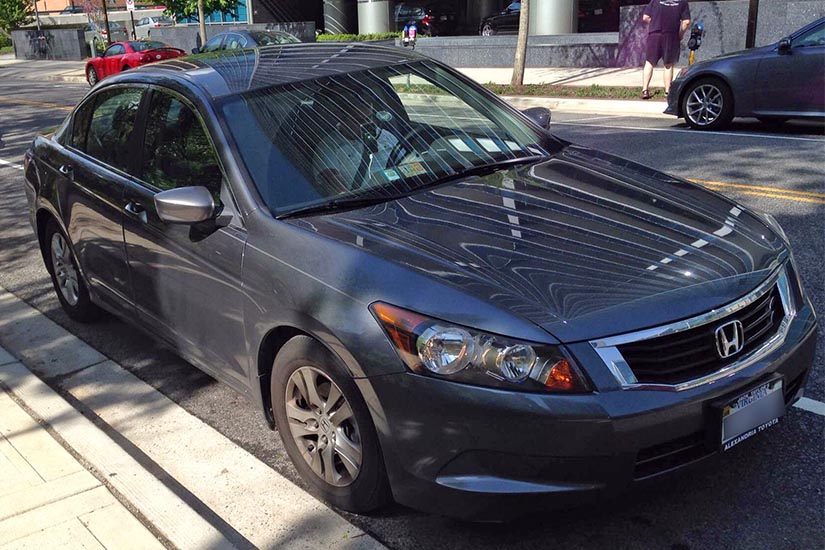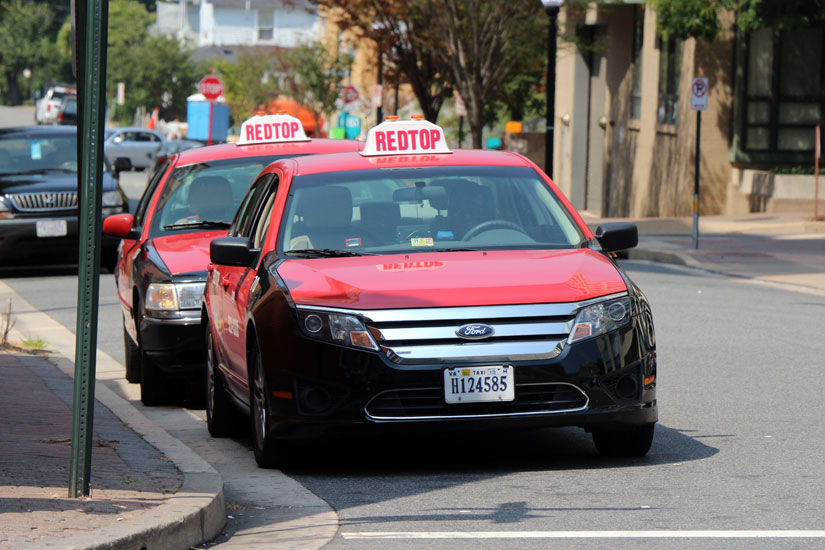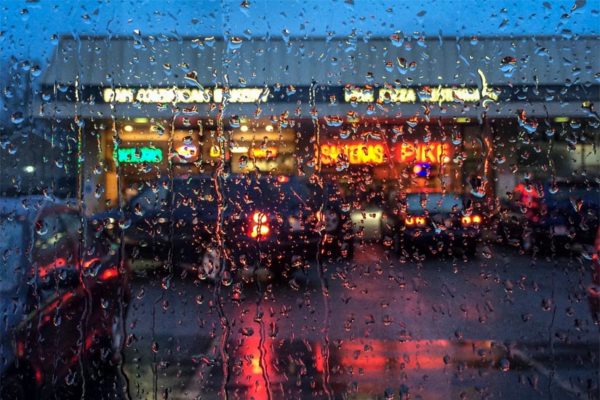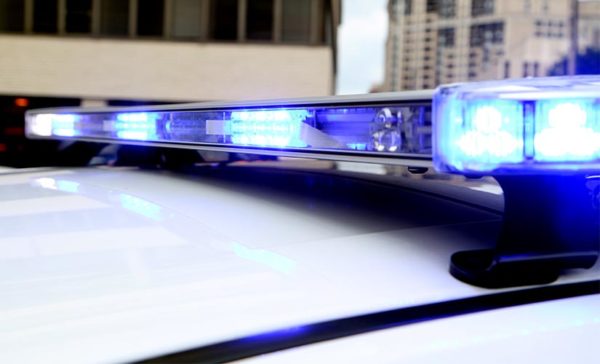 (Updated at 4:35 p.m.) Ridesharing services Uber and Lyft again can legally operate in Virginia, despite protests from taxi companies and cab drivers.
(Updated at 4:35 p.m.) Ridesharing services Uber and Lyft again can legally operate in Virginia, despite protests from taxi companies and cab drivers.
Gov. Terry McAuliffe and Attorney General Mark Herring announced today that they reached an agreement with the two smartphone transportation companies with stipulations that will allow them to operate in Virginia. The conditions “will help ensure the safety of passengers, bring the companies into compliance with Virginia law, provide transparency into their operations, and promote a level playing field for transportation providers,” according to a press release.
The state Department of Motor Vehicles issued a cease-and-desist order to the companies on June 5 for doing business in Virginia without an operating permit. Uber and Lyft have continued to operate in the state, including in Arlington, which has led to protests from taxi drivers and a lawsuit from taxi companies. The decision to allow the companies to operate did not come with a penalty for flouting the cease-and-desist order for two months.
“In order for Virginia to remain economically competitive, it is important that we welcome innovative companies like Uber and Lyft and provide them with the resources they need to safely and effectively operate in the Commonwealth,” McAuliffe said in the release.
McAuliffe’s office also announced it has authorized a study on how best to permanently allow Uber and Lyft to operate in Virginia without disrupting competitive balance with the traditional taxi companies and providing safety for its passengers. The study is expected to conclude by the 2015 legislative session, when McAuliffe hopes a bill will be introduced to codify the agreement.
The eight Northern Virginia taxi companies — including Arlington Blue Top Cab — that are suing to for an injunction against Uber and Lyft, issued a statement responding to McAuliffe’s decision, saying they “objected strongly” to the ruling.
“Today’s issuance of temporary authority to an out-of-state carrier is both unprecedented and illegal,” Northern Virginia Checkered Cab owner Spencer Kimball said in the statement. “Under state law, the DMV was not even permitted to consider this application, considering that Uber and Lyft had been openly boasting that they were not following the ‘cease and desist’ from the DMV — and had no intention to do so. As the Chief Law Enforcement Officer of Virginia, the Attorney General should be enforcing the laws, not promoting a double standard for well-connected Silicon Valley companies.”
The conditions of the temporary operating authority, per the press release, must be met or either company would have its temporary license revoked. They are:
- Extensive background checks of drivers, with immediate disqualifiers including convictions for any felony, fraud, sexual offenses, or violent crimes, or registration as a sex offender.
- A review of driving history, with disqualification for drivers convicted of three or more moving violations in the last three years, DUI, underage drinking, refusal to submit to a breathalyzer, hit and run, or eluding law-enforcement, or a revocation of a driver’s license.
- Zero tolerance for the use of drugs or alcohol by any drivers, and a suspension pending investigation of any driver accused of violating the zero tolerance policy.
- Only employing drivers who are properly licensed and over 21, and vehicles that carry a maximum of seven passengers and are properly registered and inspected for safety and emissions, where applicable.
- Rigorous insurance requirements, including requiring drivers to maintain automobile liability insurance, maintaining on behalf of all drivers an additional $1,000,000 of coverage from the moment a driver accepts a trip request until the passenger leaves the vehicle, and liability insurance for drivers who are logged onto the companies’ software but not providing services.
- Maintaining documentation for each driver of his or her background check, sex offender registry check, driving record, proof of insurance, valid driver’s license, Social Security number, vehicle registration, and proof of vehicle safety inspection. Documentation must be available to DMV on demand to investigate any complaints, and must be available for periodic audits to ensure compliance.
- Paying any previously assessed civil penalties for non-compliance and dropping any appeals, which both companies have already done.
- Features to help customers identify their driver and vehicle, including from the outside of the vehicle.
- Drivers notifying the companies of any change in their license status, vehicle registration, insurance, or any arrest for a crime that would disqualify them from being a driver.
- Rate transparency and documentation.
- Companies advising drivers of their need to comply with applicable tax laws.
- Only accepting rides booked through the companies’ mobile device apps, not street hails.
- Companies maintaining a Virginia transportation broker’s license.
The full press release, after the jump: (more…)


